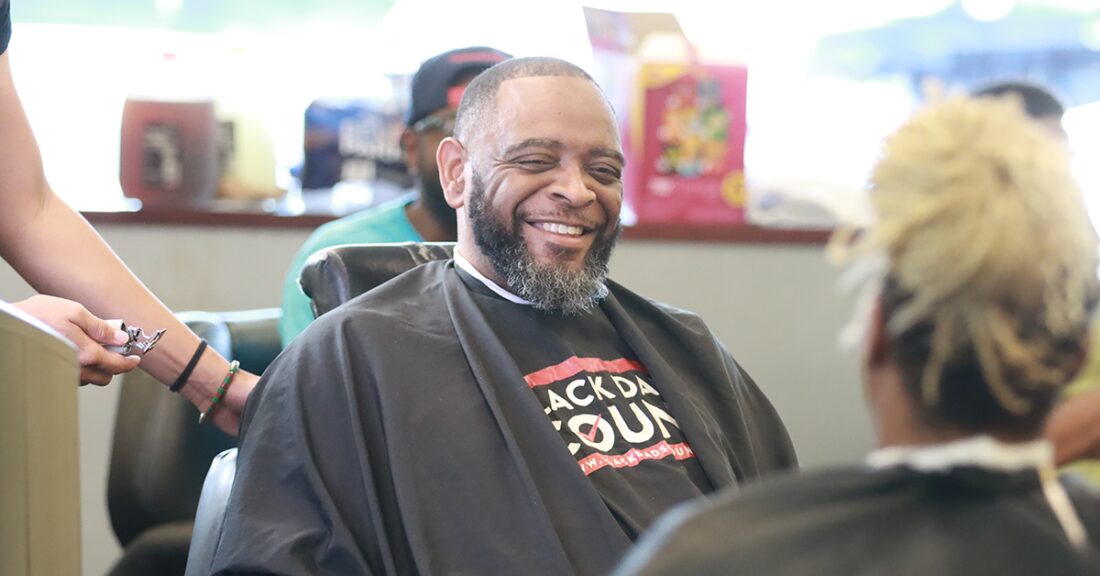Revamped Curriculum Helps Atlanta-Area Fathers Build Community and Parenting Skills

The Connect Parent Group, a grantee of the Annie E. Casey Foundation, has partnered with Atlanta-based Fathers Incorporated to deliver its parenting skills program to Black fathers in the city. The 10-week, evidence-based curriculum uses community-informed parenting resources to address the unique challenges and opportunities that come with parenting adolescents and young adults. Its aim is two-pronged:
- improving communication between parents and their teens; and
- strengthening or rebuilding bonds, especially when separation has occurred.
The Foundation’s Atlanta Civic Site helped identify Fathers Incorporated for this collaboration because of its well-established fatherhood engagement efforts. The program is administered at Royal Roots, a Black-owned barbershop located in East Point, Georgia.
“Community organizations are like the neighborhood experts; they know best where programs would be most effective and what parents in their community are saying they need in order to support their older youth in the transition to adulthood. Fathers Incorporated is a great example,” says Veola Green, a Casey senior associate.
The Fathers Incorporated team learned to teach a community-based version of the Connect curriculum, in which 12 parents engage in group discussion and reflect on their parenting skills and the needs of their children. Participants also watch and take part in role-play exercises that highlight effective choices for responding to teen or young adult behavior.
The participating fathers noted several particularly effective aspects of the program:
- A mutual learning experience. Each father brought a unique perspective and his own wisdom to group discussions. Facilitators encouraged participants to view their parenting situations through the lenses of others and listen to other fathers to learn more effective ways to communicate and bond with their children.
- A safe space for navigating challenges. Fathers, especially young fathers who feel their every move is scrutinized, were more likely to openly share their situations with others and seek guidance when they felt that they could do so without judgment from their peers or facilitators.
- Culturally relevant design. Cultural norms influence how a parent communicates with their teen or young adult. Facilitators engaged in role-play that was sensitive to how social mores might show up in participants’ parenting and helped them identify ways to approach the situation differently.
Moving forward, Fathers Incorporated wants to train other community-level organizations to deliver Connect and hopes to expand the initiative across the Greater Atlanta region.
Jocquell McDaniel, a father who participated in the program, says the experience gave him the opportunity to reassess how he communicates with his son.
“These young men are teaching me to take a step back, think about what my son is needing from me — whether it be connection, attachment, some attention — [which] allows me to give him what he needs and be a more effective father.”






